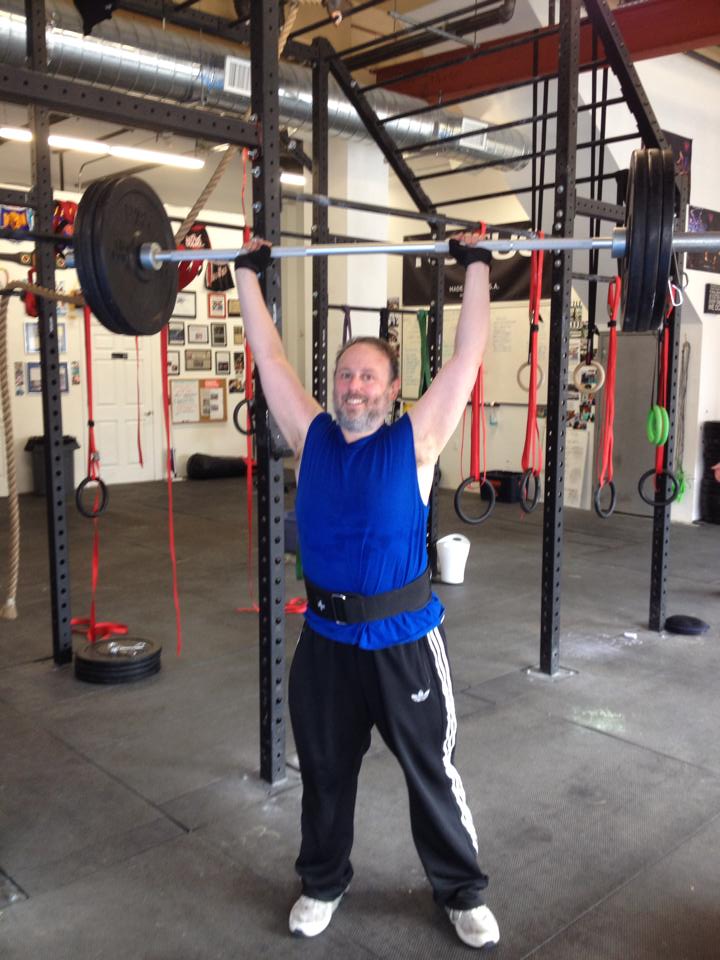Obsessive Compulsive Disorder
By Jack A.
I have always been meticulous by nature. Not in a Felix-Unger-neat-freak kind of way, but in a stickler-always-by-the-rules kind of way. I remember one incident, when I was in sixth grade; I was utterly exhausted. I was struggling to stay awake at the kitchen table so that I could do my math homework. My mother encouraged me to go to bed, offering to write my teacher a letter of explanation. I wouldn’t have it because my sixth-grade math homework simply HAD to be done. Inflexible, sure, but that inflexibility got me a straight-A average from grade school through grad school.
Some time in my twenties, however, things started to get out of hand. I was married with two very young children (my youngest had not yet been born), working as director of admissions for a small Liberal Arts college in New York, and I developed a compulsive checking habit. The main sources of my checking were: (1) Is the door locked? (2) Is the coffee pot turned off? and (3) Is my car where I left it?
You would not believe how disruptive this can get. I would leave my house through the front door, checking the knob to see that it was locked. I would get to the bottom of the stairs, then go back up to double check. Sometimes, I would get to the corner and go back to triple check. There were a lot of “sometimes.”
It was bad enough getting out of bed to look out the front window to make sure that my car was still there, but going to, say, a doctor’s appointment was much worse. Even if I knew I was legally parked in a lot, I would leave the waiting room two or three times “just to make sure.”
The OCD manifested in other ways. I traveled a lot for work in those days and I would regularly pull over on my way to the airport “just to make sure” that my luggage was in the trunk.
The coffee pot, at least, I know how it started. Someone at work (Hi, Joyce!) once left the pot on over a three-day weekend. The coffee had all boiled out and even the power cord was hot to the touch. We were extremely fortunate that we didn’t have a fire and after that I was determined to always make sure that the coffee pot was turned off when I left for the day.
It was also the coffee pot that convinced me to get help. One Friday, I took my younger son – then maybe three or four years old – to the office, and I was the last to leave. I checked the pot. I opened the door and checked again. I went down in the elevator, came back up and checked again. And again. And again. I must have gone down and back up to check (a) that the coffee pot was off and (b) that I locked the door after checking the pot. Fortunately, junior was still too young to know that daddy was going a little cray-cray.
I went to see my wife’s therapist, who prescribed a drug called Luvox (generic name: Fluvoxamine). Happily, in my case, ongoing therapy wasn’t needed, as the drug cleared my problem right up. I only needed to see the doctor a few times to get the dosage right. After a few years, I was able to scale the dosage back to a fraction of what it had been.
Taking medication to control my OCD doesn’t change my personality. I’m still a stickler for rules (I don’t speed, much to my wife’s chagrin when I’m going 50 mph on the Belt Parkway and everyone else is doing 70). I’m still meticulous; I don’t make careless errors. I’m an excellent proofreader and I’m convinced that my OCD tendencies are at least part of why I’m so good with the rules of grammar. And yes, sometimes I still double-check that the door is locked or the oven is off – ONCE. Nowadays, I can even use my OCD powers for good. For example, after years of an unhealthy, sedentary lifestyle, I have become quite the exercise buff. My personality simply isn’t to blow off a scheduled workout because I’m tired or it’s raining. We can teach ourselves to channel these urges in more productive ways.
OCD, like ADD and Tourette’s, is one of those disorders that people still consider an acceptable punch line. “I have CDO – it’s like OCD but in proper alphabetical order, as it should be.” People only know what they see on TV, and on TV it’s a source of humor. Sorry, folks. In real life, it’s simply not that funny. It disrupts lives. But I know firsthand that it can be controlled. One just has to acknowledge when it goes from being a personality trait to a real problem.
Jack A. is a professional theologian, a writer and an educator.








Leave A Comment